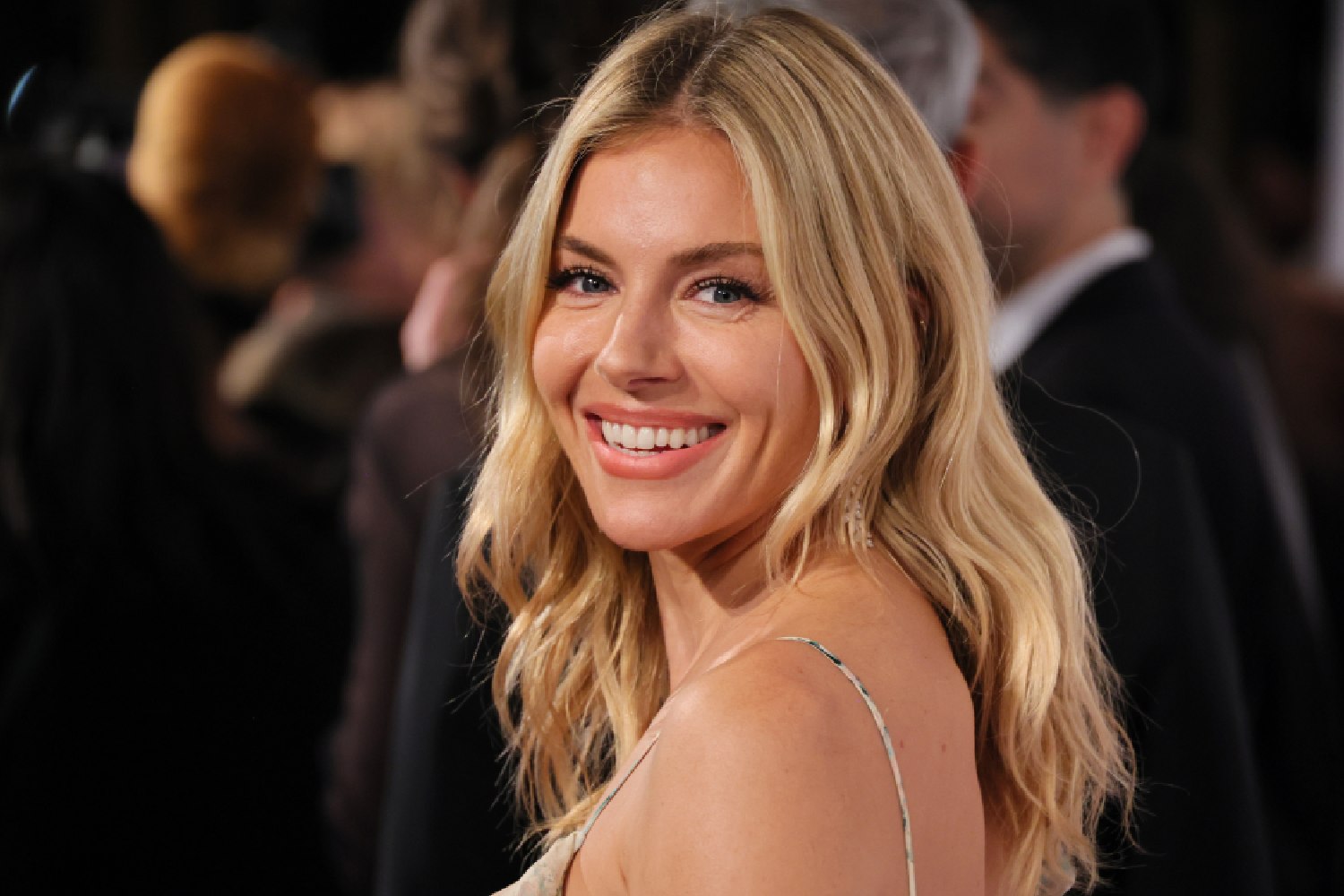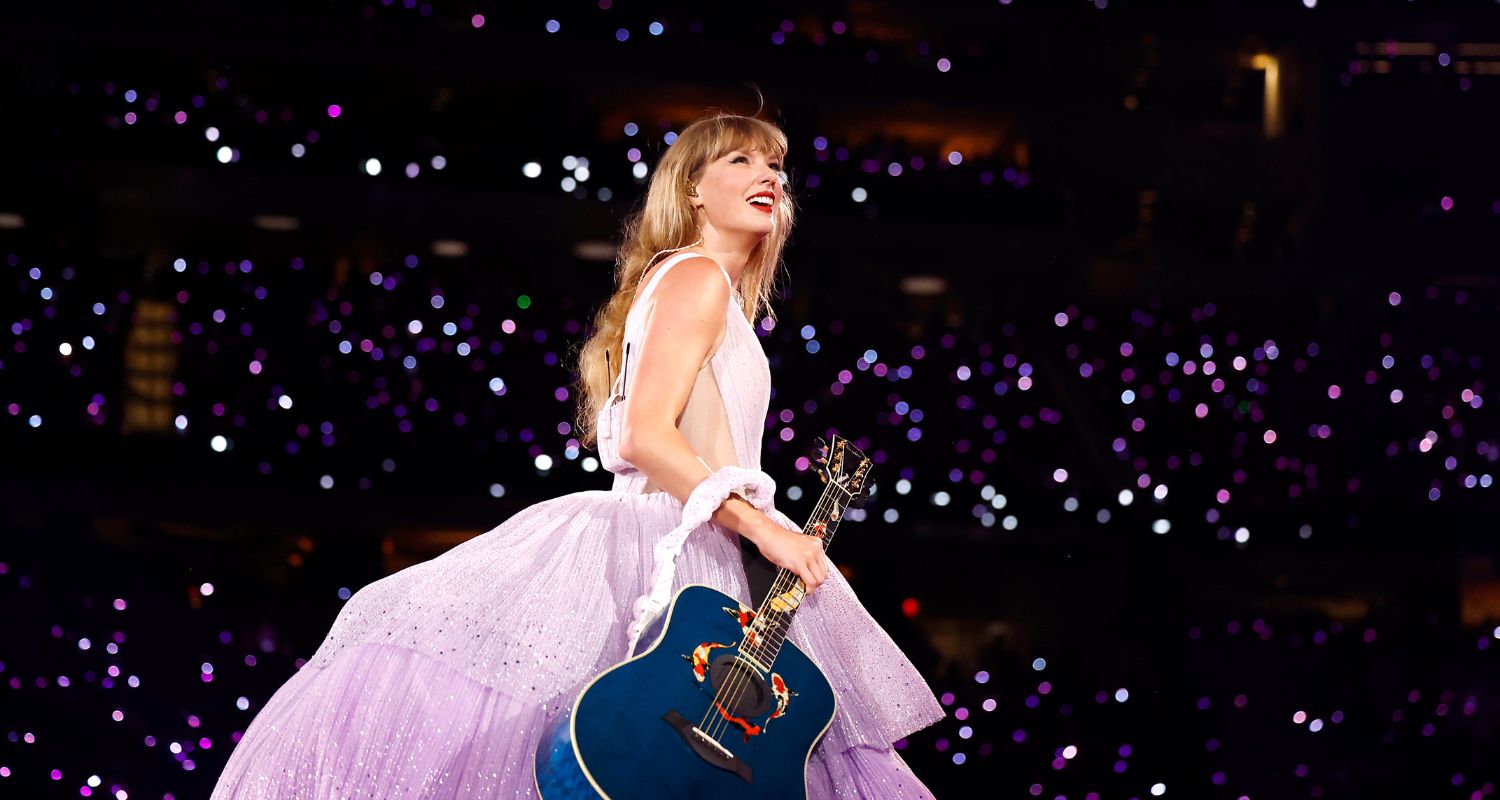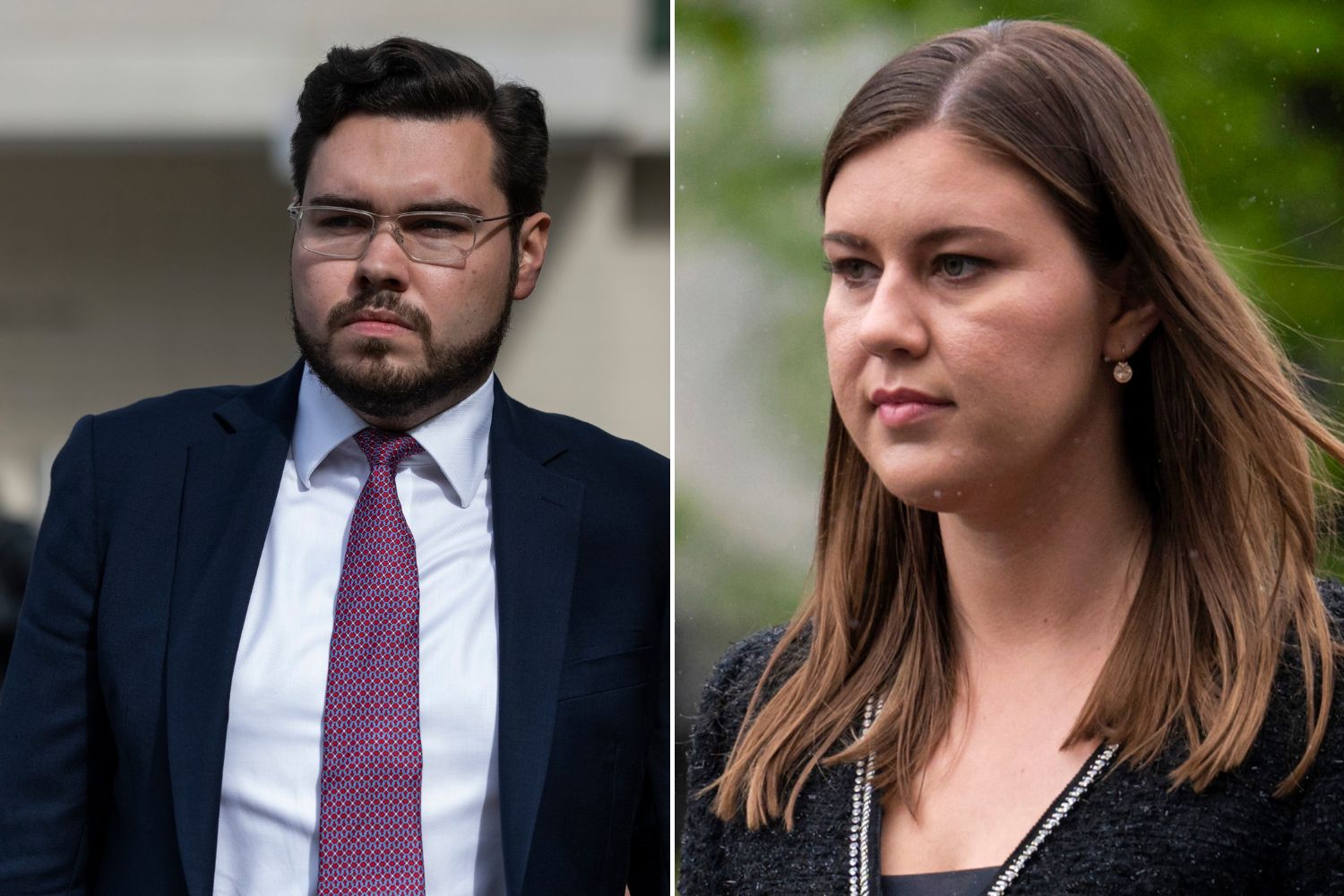Last night, the marie claire Power Talks event, proudly sponsored by Pandora, brought five of Australia’s most influential women together in one room, where they joined forces and spoke about their own inspirational journeys and the concept of power.
The attendees not only heard from the queen of comedy, Celeste Barber but professor and “Yes” vote campaigner Megan Davis, iconic fashion designer Camilla Franks, entrepreneur Anna Lahey from Vida Glow, and of course, acclaimed actor, best-selling author and award-winning disability rights activist, Chloe Hayden.
In her powerful speech about growing up neurodivergent, Hayden spoke candidly about her experience feeling powerless, telling the room, “My powerlessness was shoved into my face each and every day at school by my teachers, by my peers, by society, by the belief that my difference made me less. It was forced into me. The reality is, I am powerful – not in spite of my difference, but because of it.”
You can read Chloe Hayden’s Power Talks speech in full, below.

Chloe Hayden’s marie claire Power Talks Speech
“Hi, everyone. My name is Chloe. And for those who are visually impaired, I am a white woman with auburn hair, and I’m wearing a very cool, very slick reddish brown suit.
In our time here today, I just want to let you guys know that there is going to be a trigger warning for suicidal ideation for mental health and some pretty revolting statistics.
If any of these things are going to trigger you please take a breath, please step out—your mental health is so much more important than listening to some autistic chick speak, I promise you.
And if you do want to stay and it’s something that could trigger you please go and reach out to your support group afterwards. It is so, so, so important to reach out to support—there is nothing more powerful than asking for support when you need it.
Because I am different, I am powerless.
Growing up, I have always been entranced with the idea of fairy tales. A world in which the lead is considered a hero because of their differences, rather than ostracised and pushed aside because of them—where happily ever afters are an expectation rather than a hopeful yearning.
Every single day, until I was 18 years old, I sat at my window, leaving it open on the off chance that Peter Pan would come and realise that he had forgotten a very peculiar little girl and whisk her away to Neverland to a world with pirates and pixies and mermaids, away from her world which made absolutely no sense for her to a world that possibly would.
Day after day and year after year, I sat wishing, hoping and praying, but Peter Pan never came. My teenage years were a tangle of emotions as I tried to forget the world where I could fit in and try to just live in the world that I was given instead.
I tried to make myself believe that fairy tales were just the stories in books and happily ever afters weren’t invented for people like me—but my heart was so, so, so deeply desperate.
As I’ve gotten older, I’ve started to realise that perhaps these yearnings are completely and entirely unwarranted.
Peter Pan may not be coming to rescue me one day soon and maybe I’m not going to look at a magic pool of water and have all my hopes and dreams come true in some form — but that isn’t because fairy tales aren’t real. In fact, I believe in them more so than ever, because we are living in them each and every day.
In my once-upon-a-time, I related to a young Elsa from Frozen.
I had a beautiful family and an amazing life. From an outsider’s point of view, I had the picture perfect fairytale. But I knew from a very very young age that my mind was not wanted.
I knew when I was four years old in kindergarten, when I was talking to snails while the kids were playing with each other, and I was watching from the sidelines and wondering how on earth they made it look so easy. I knew it at age five, on my first day of school, I was left being beaten up, bullied and abused, my teeth knocked out, of being hurt by both the students and more so the teachers.
And this treatment continued throughout the entirety of my schooling, and left me with a taste in my mouth of understanding that who I was was never something that I ever should be. I knew that the world didn’t want me. I knew that the invisible manual gifted to every single one of us at birth—that mine was defective and for so long, I left that consume me. Because of my difference, I was powerless.
My own diagnosis came when I was thirteen and my English teacher brought my parents in for a meeting that I wasn’t invited to, to announce to them that “there’s something seriously wrong with your daughter.”
I was initially tested by going to a hospital and getting CT and MRI scans done on my brain on account of the fact that they thought I had fallen off my horse too many times. My horse had been banned from every pony club in the district and had bitten off three people’s boobs I’m not joking. So from their account, it kind of seemed fair enough.

But on that account, why do we live in a world where a child is only completely and entirely normal if they can fit into these tiny little boxes that society seems to have created, or they are deemed completely and utterly wrong?
I then spent the next six weeks in a psychologist’s office, where we did various tests and games and quizzes and polls and questions, all of which I thought was completely and utterly bizarre — but I’ve come to expect it of the typicals.
After these six weeks, we were met with a: “Congratulations, it’s autism.”
A lot of late diagnosed autistic people often talk about the euphoria that they get after getting the diagnosis and finally the understanding of their brain and finally, they feel like they can fit into the community — but this wasn’t my story.
Because when I got my diagnosis, my mom started crying. She was fearful of a life that her daughter would never have.
When I got my diagnosis, I went home and I pulled out my laptop and I Googled it. Then of course, I was met with hundreds and hundreds of articles with the headlines ‘devastating autism diagnosis’ ‘how to cure autism’ and ‘ groups of families in my area ruined by autism’. When I got my diagnosis, I found an advert. It said: “I am autism. I work faster than paediatric AIDS, diabetes and cancer combined. If you are happily married, I will make sure that your marriage fails.”
When I got my diagnosis, my friends all left me. They didn’t want to catch it. I was made powerless.
Powerless means that 52.5% of anorexia sufferers are autistic. Powerless means that more than 70% of autistic people have an extreme mental illness. Powerless means that in the UK, suicide is the leading cause of early deaths of autistic people—we are nine times more likely to die by suicide, and the majority of the population believes this is for the best. Powerless means that if I make it to my 39th birthday, I have beaten the statistics.
Powerless means that we have been left behind by the powerful.
Many people in this room, whether by culture, gender, race, ability or class, are most likely a little mixture of multiple sociological powers, and many, many other people. I’m standing before you today and I am begging you, do something with it.
These statistics are not a symptom of autism, they are only because people in power leave us behind.
If you’re a teacher or if you are in the education system and you’re sitting in this room today, you need to know that educationally, autistic children have the worst outcome of any child in the entire system, with 97 percent of autistic children facing difficulties in their schooling, and more than 50 percent have said having to change schools more than twice It is your responsibility ensure that disabled children in your class can find their power.
If you’re an employer in this room, if you’re a company in this room, you need to know that 31.6% of autistic Australians are unemployed.
This is six times the rate of non autistic people, despite autistic people often possessing higher qualifications and skills. It is your responsibility to ensure your workplace is inclusive.

20 percent of Australians are disabled—if you look around your workplace and one in five other workers are not disabled, then you are not using your power and you are part of the problem.
If you work in the media, look at the content that you’re creating. Look at the people in front of the camera and the people behind the camera, that 20 percent doesn’t justify the corporate jobs.
We cannot be what we can’t see. So for God’s sake, because privately let us see it. This is your responsibility. If you work in the medical sector, use your power to unlearn your bias, to unlearn stereotypes and unlearn discrimination that is rampant in the medical system.
Currently, autism diagnostic rates say that for every one girl, there are four boys [with autism] or a very long time, it was considered science that boys are more likely to have autism. Recent studies show this isn’t the case. Because the medical system is constantly leaving women behind in every sector imaginable, [autistic women are] also being left behind when it comes to diagnosis.
If you work in politics, come and see me after. I have an extremely large bone to pick with you. If you are a human being, you hold power, and you can use your power to change the world.
We are all living in a fairytale.
Something I’ve learned over my fairytale is that if the world that you are living in isn’t created for you, there is no reason that you can’t turn the page, pick up your pen and write a new story.
You can choose the part that you’d like to play. You can use your power to ensure that other fairy tales can continue to be written.
There’s no reason why you can’t come to the page, pick up a pen and write a new story.
After my diagnosis and seeing nothing but deficit for so long, seeing nothing but fear mongering articles making my mind that seems wrong, I did what Gen Z kids do now: I took to the internet and wrote my deepest darkest feelings into an online blog.
My sole intention of this blog was to scream out to the universe. I was praying and waiting and hoping for one other person like me. But I genuinely was not expecting the entire abyss to speak back to me. Almost overnight, my blog gained viral attraction with a number of comments saying things like, finally someone to accept me. For the first time, I felt seen.
That blog quickly became the most important thing in my entire life. Every time I felt lonely, or lost, or confused in my head, too far away, and going too slow, I would write out the best parts of my day, [and] I would write out the worst part of my day. his blog became my online journal. And finally, I felt a sense of safety and community in the comments from others, who obviously felt like they came from the same planet as I did.
With my world starting to make a little bit more sense and engaging with the readers who came to my little blog every day, I noticed that every single one of them had a feature written into their being, something I now call ‘eye sparkles’.
Eye sparkles — or gifts or superpowers — are things that quite literally make our eyes shine with excitement and zest for life, that make us happy, excited and powerful.
In autism, we have all these special interests. They are at all times seen as something that is wrong. Something that is odd and curious or seen as quirk or obsession, or as something not the norm, something seemingly innocuous. But I know with every part of me it is the most important thing that humans can possess. Your eye sparkle powers you.
Seeing this power in others, I started to wonder perhaps there might also be a power in me as well. Spoiler: there was.
Over time, and over chapters that I don’t have the time to go into today (but I have a book out and you can read that if you want to), I learned that these differences that render us powerless are actually the most powerful thing in us. I was told that I was powerless, that my differences would stop me from succeeding. Last year, I became Australia’s first ever openly autistic actress.
I also became the second autistic actor in the entire world to play an autistic character.
My difference makes me powerful. I was told I was powerless, to stop living in fairy tales. Last year, I published my own fairy tale, a globally best selling memoir, where finding your power is the entire message. For the first time, difference was a global success.
I was told I was powerless, that I would have to conform and that no allowances would ever be made for me so I have to be more to make allowances. Now, I refuse to accept jobs that refuse to cater towards me and have used my voice and my power to tell companies when they’re being bigoted or ablest or unethical, and have no fear in very boldly and very loudly calling out people and places that refuse to change.
My voice holds power. My powerlessness was shoved into my face each and every day, by my teachers, by my peers, by society, by the belief that my difference made me be less was constantly forced into me. The reality is, I am powerful, not in spite of my difference, but because of it.
This isn’t just my fairy tale, it is all of ours.
All of our differences hold power, and it is vital more so now than ever that we focus on our differences, and our co workers’ differences, on our kids’ differences, and that we focus on the power in difference.
No one has ever made a difference by fitting in. We were born to stand out. If you have a look at any person who has ever done anything great — number one, they are probably autistic. And number two, I promise you they didn’t get to where they are by being the same as everyone else. They got to where they are because they were the quirky one, because they were the weird one, because they were the one that was a complete oddball to society. Society is, quite frankly, messed up.
And I know that there are people in this room who have spent their entire life hiding that difference. How can you not? For women, it has been so long ingrained into our very beings to fit in to be quiet and to be small, particularly so if you’re a minority as well, where our power and our acceptance different is so often taken. Disabled women, by women, trans women, queer women — our power is so often taken from us. But it is time that we pick up the pen that we change the narrative, and we re-write our stories.
You are the fairy tale’s protagonists. Do not let anyone take that from you.
Each and every one of you in this room holds power, no matter what society has told you. You hold power, and being completely and uniquely, you. Some people are better at hiding the differences, or societies that are embracing them.
But just because society believes something doesn’t make it true, and doesn’t mean that we don’t have the power to change it.
We have the choice to focus on the positive parts of that difference, because difference is crucial to the future of our world. Nothing has changed without your difference. Nothing ever grows without difference.
The world needs different. It needs power. We all have power. Find it and use it and embrace it. If you’re a person in a privileged position whose power is already in you, please use it. I am begging you, use it. It is so important. If you’re a person who hasn’t found out how yet, I promise you it is inside you. And once you unlock it, it is going to be the most magical thing in the entire world. But we need the people that are currently in positions of power to make sure that our voices can be heard.
Usual power in the workplace, usual power in your schools. Use your power to ensure that we don’t need to have anymore broken fairytales and unfinished stories because there are too many.
Use it today. Use it tomorrow. Use it on the 14th of October to ensure that other people can hold their power.
Because of different, we are powerful.
Chloe Hayden will star as Quinni in the upcoming second season of Netflix’s Heartbreak High, and her book Different, Not Less is out now.










